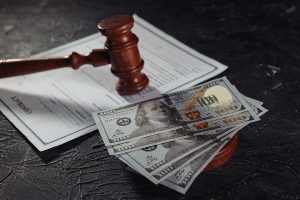Suing For Damages In St. Petersburg Involves More Than One Kind Of Damage
 Michael Babboni
Law
Michael Babboni
Law
Getting injured due to someone else’s carelessness or some other corporation’s negligence is not a criminal act, but it is against the law and can be dealt with in court. These are considered civil cases, so the outcome is not to find someone guilty and put them in jail but to determine whether a plaintiff is right in making a claim and awarding financial compensation to the victim instead of a jail sentence to the guilty.
These types of personal injury or wrongful death cases seek compensation known as “damages,” but there’s more than one kind to consider depending on the case and its circumstances.
Economic Damages
This is the foundation of financial compensation is the easiest to calculate. Economic damages look at two primary factors. The first is the current and potential future costs of medical treatment. So, for example, if an auto accident results in paralysis and the injury victim must now use a wheelchair, the costs of medical treatment are factored in, but additional future costs, such as physiotherapy and any other medical treatment related to the paraplegic medical condition are call covered by these damages.
Economic damages also cover lost wages. If a person is injured and is temporarily unable to return to work while recovering, economic damages will compensate for the lost salary that normally would have occurred during this period. If the injury is more serious, such as a permanent handicap that leaves the victim unable to return to the previous occupation, this will also be factored into the economic damages.
Non-Economic Or Special Damages
This can be a bit more abstract to calculate, but in addition to the straightforward numbers of medical costs and salary, “pain and suffering” are also factors that can be added to damages during a lawsuit. The physical pain, mental stress, and emotional anxiety figure into this portion, but how those amounts are calculated vary wildly.
For example, post-traumatic stress disorder and an inability to enjoy former hobbies, such as recreational driving, might be part of pain and suffering. If someone is paralyzed and no longer able to have sexual relations with a spouse, this would also constitute pain and suffering. How this is defined and how it affects an accident victim requires individual investigation and calculation.
Treble Damages
As the name implies, treble damages are a special case where the amounts involved are tripled by the court, often a jury decision. However, circumstances must be exceptional to justify treble damages coming into play. If exceptional factors can be proven, such as an injury resulting from deliberate mischief or malice by the defendant, then treble damages may be issued.
Punitive Damages
This additional financial compensation is awarded as an act of “punishment” to the defendant if, as is the case of treble damages, exceptional circumstances are involved. For example, if an auto accident victim dies in a car accident, and this is not only proven without a doubt, but it’s shown the defendant was drunk at the time and was a repeat offender of driving. In contrast, drunk, a jury may take this opportunity to add punitive damages to further punish the defendant for repeatedly ignoring the law.
As the name suggests, punitive damages are designed to “make an example” of someone with exceptionally high financial damages. This can either single out the defendant for an exceptionally harmful act or set a precedent for others to dissuade them from giving in to the same impulses.
If you or someone you know has been injured due to someone else’s negligence, talk to a personal injury lawyer and find out how to make sure the people responsible are held accountable.
